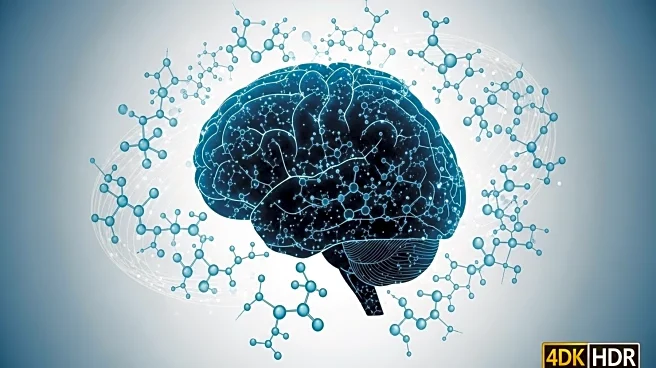What's Happening?
A study published in Cell by Liebana and colleagues reveals that dopamine acts as a circuit-specific teaching signal, influencing individual learning trajectories over time. Traditionally known for encoding reward prediction errors, dopamine's role extends beyond short-term learning to guide personalized strategies in long-term skill acquisition. The research highlights dopamine's dynamic role in the dorsolateral striatum, where it shapes learning by reinforcing neural pathways based on early behavioral biases and strategy-dependent phases. This finding challenges traditional reinforcement learning models, offering new insights into the complexity of learning processes.
Why It's Important?
Understanding dopamine's role in learning has significant implications for neuroscience, education, and artificial intelligence. By revealing how dopamine guides individualized learning strategies, this research could inform the development of personalized educational approaches and enhance AI models that mimic human learning. The study also provides a framework for exploring other neurotransmission systems involved in learning, potentially leading to broader insights into adaptive behavior and strategy development.
What's Next?
The research opens new directions for studying dopamine's role in other brain regions and neurotransmission systems. Future studies may extend the reward prediction error model to include systems like glutamatergic and GABAergic circuits, offering a comprehensive understanding of large-scale learning mechanisms. The findings could also inspire the development of biologically plausible computational models that capture the dynamics of learning and strategy formation.
Beyond the Headlines
This study challenges the classical view of dopamine as merely encoding reward prediction errors, proposing a broader role in guiding long-term learning. By tracking mice over several weeks, researchers uncovered diverse learning strategies determined by early biases, with dopamine encoding strategy-dependent stimulus-choice associations. This research highlights dopamine as a stimulus-contingent teaching signal, emphasizing the need for further exploration of its role in learning and decision-making processes.









